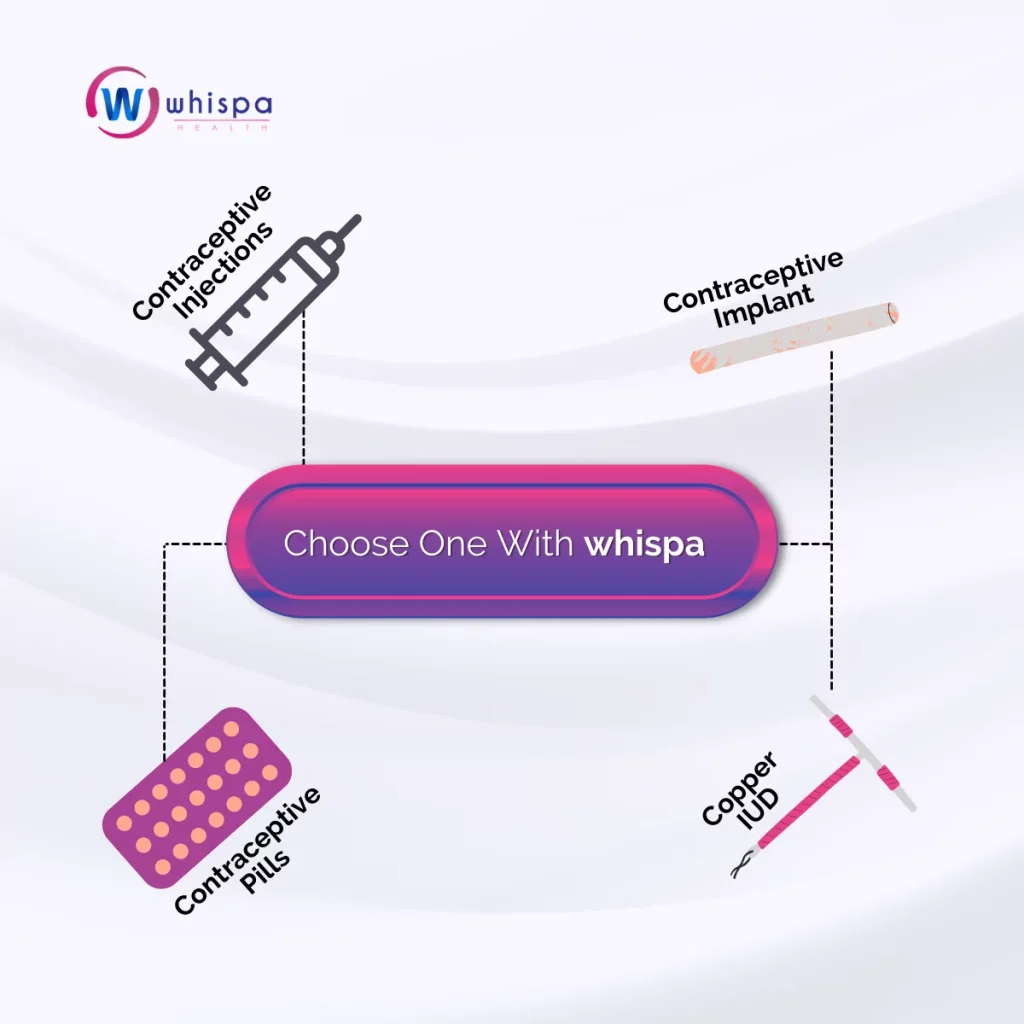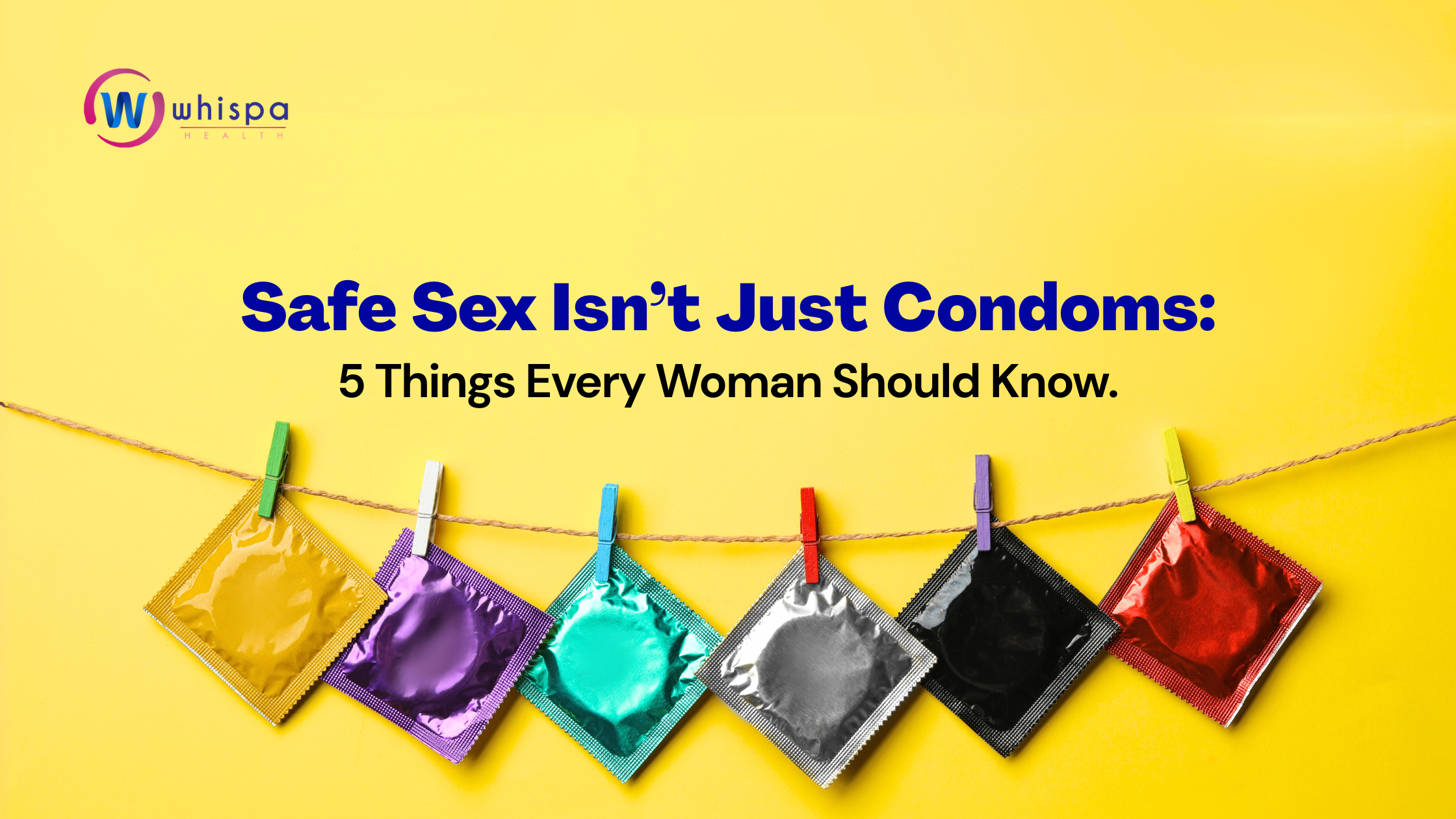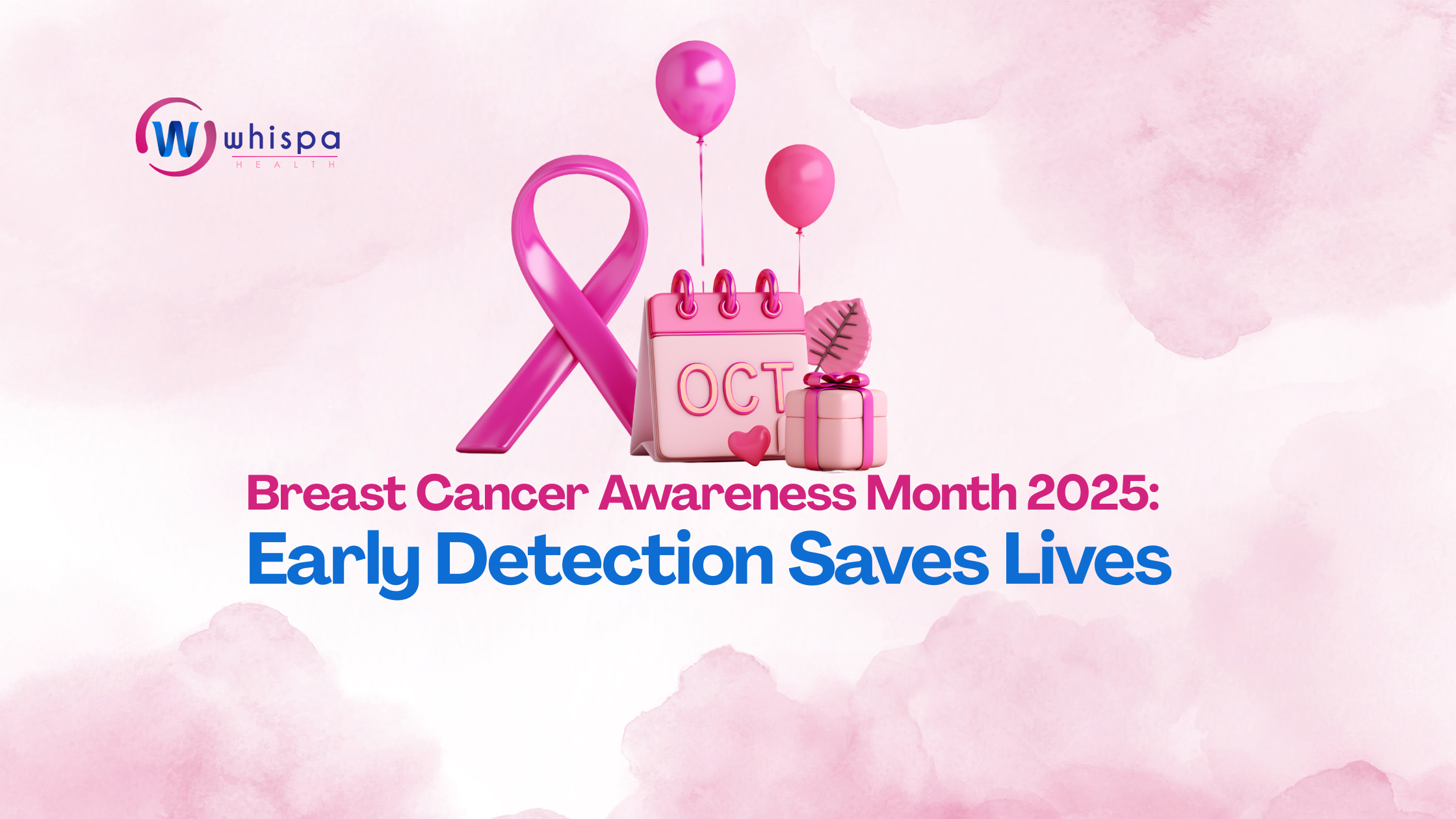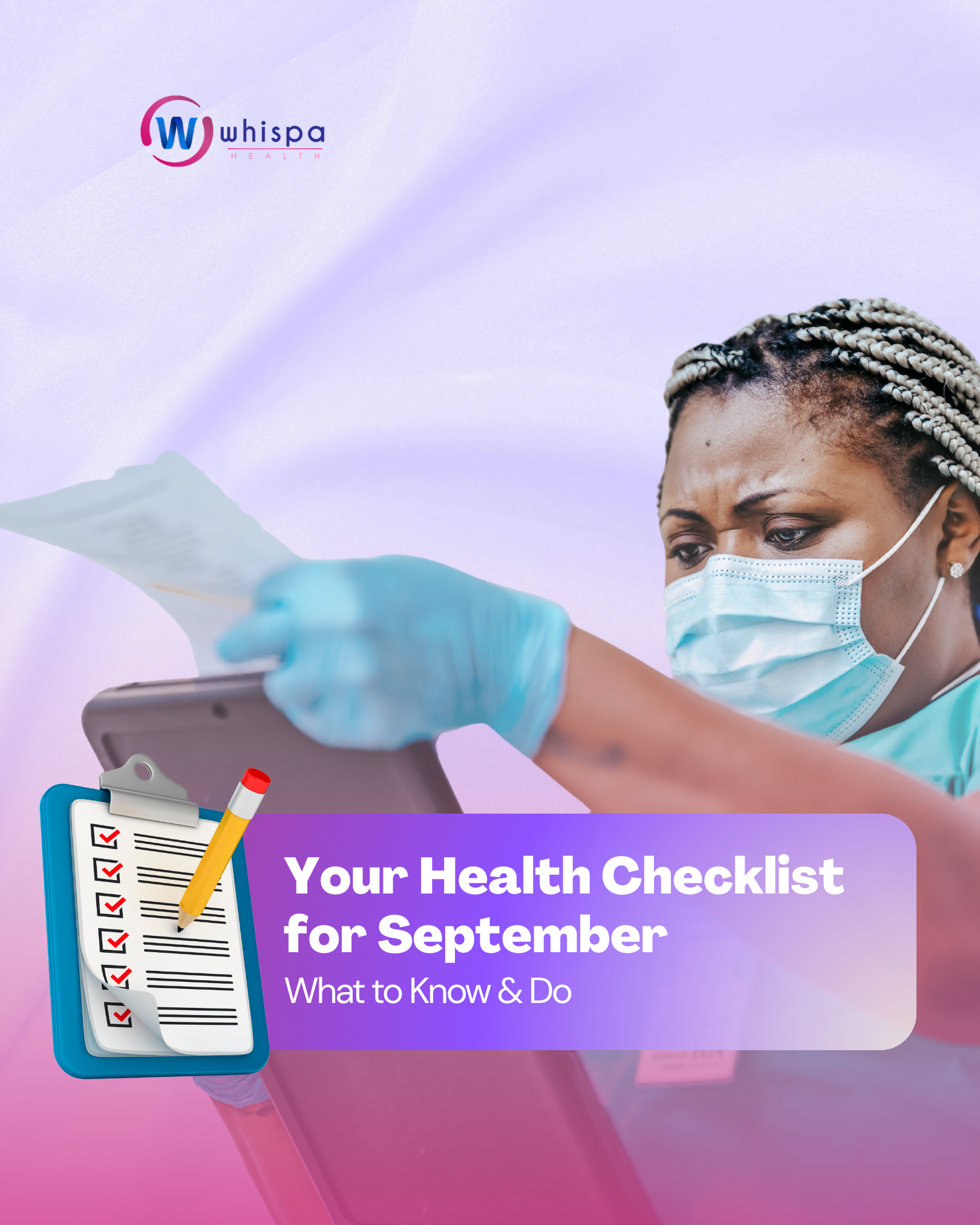At Whispa, we like to say that preventing pregnancy is not a big deal. However, if you do not know what contraceptive options are available for you, or if you do not know the factors to consider, the truth is, it can feel like a big deal. Pregnancy prevention methods also known as contraceptives are the different reliable ways to prevent pregnancy.
In Nigeria for example, the contraceptive options available for you are Condoms, Diaphragm, daily contraceptive pill, contraceptive injections, contraceptive implants,s and copper, and hormonal IUDs.
For the purpose of this article, I will be excluding these three options that I have briefly mentioned below:
- The emergency contraceptive pill, because it is not a regular contraceptive method, and as the name goes, it’s your plan B, backup, or last resort when you did not use a regular contraceptive or used one incorrectly.
- The cycle counting method, because it requires you to abstain from sex during certain days of your cycle, and does not require you to actually ‘use something’ to prevent pregnancy.
- Withdrawal or pull-out method, because it is single-handedly responsible for many of the unwanted pregnancies that have occurred worldwide.
Now, let’s go back to discussing those contraceptive methods that can actually allow you to have sex ANYTIME, any day, and hopefully, in any position, you and your partner can manage.
FOUR (4) factors that you should consider before getting a contraceptive
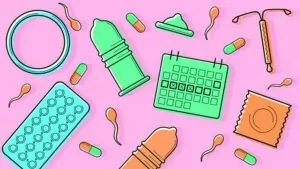
If you want to use a contraceptive to prevent pregnancy, then there are at least FOUR (4) factors that you should consider before getting a contraceptive. Factors like:
- Time-how long do you want to prevent pregnancy?
If you are thinking 6 months or less, then you might want to go for methods that are super easy to start and stop using. Methods like: a. Condom, b. Diaphragm and c.the daily pill.
If on the other hand, you think you might want something that covers you for one year or more and allows you to have spontaneous sex, then you should be looking at a. The 3-month injection, b. The implant c. the IntraUterine Device (IUD)
2. How quickly can you become pregnant after you stop using it?
In Nigeria, most people blame a couple’s infertility problems on the woman alone, forgetting that it takes two to get pregnant. In addition, there are many conditions that can make it hard for a couple to conceive and it could be a combination of problems from both the man and the woman or one-sided. However, speaking strictly about contraceptives as a factor in delaying fertility, then there is only one contraceptive method that is known to cause a delay in conceiving after you stop use. Studies have shown that the contraceptive injection can cause a delay in fertility from as little as one month to as long as 1 year. As for all other contraceptive methods, they do not cause significant delays and will either stop working as soon as you stop use or within one to two months of stopping the method.
3. Do you want to use hormones to prevent pregnancy?:
taking a contraceptive that contains hormones can serve a double function. Not only can they help you prevent pregnancy, they can also provide extra benefits that women like such as lighter and less painful periods or no periods at all. Women on the daily contraceptive pill might also experience a positive effect on their vaginal bacteria which in turn protects them against bacterial vaginosis.
Although using a contraceptive with hormones can be quite beneficial, they may also cause side effects like breast tenderness, and irregular menses, and some women tend to be alarmed and think that they are pregnant when they stop seeing their periods. Despite this, hormonal contraceptives are still a very popular contraceptive option. However, remember that if you have health problems like diabetes, hypertension, or an autoimmune disease, then your doctor may recommend that you must only use contraceptives without hormones.
That means that you would only be able to use these contraceptive options: the condom, the diaphragm, or the copper IUD.
4. Do you want to prevent pregnancy and Sexually Transmitted Infections (STIs)
The clear superstar in the contraception family is the condom. This is because, a condom can be used only when you have sex, started and stopped whenever you like and it is the ONLY contraceptive method that will also protect you from Sexually Transmitted Infections.
Do you know that STIs can not only destroy your reproductive system and fertility, but some like HPV and Hep B can also cause cancers? Furthermore, many STIs can actually lead to death if left untreated.
Several studies have also shown that women who consistently use condoms also have healthy vaginal bacteria. In case you do not know, vaginal bacteria are the first line of protection against STIs.
One important tip for condom users is to use water-based lube. This is because oil-based lubes like vaseline, body cream and other types of oils will cause tiny, microscopic holes in the condom which will still allow sperm and germs to pass through. On the other hand, water-based lubes are not only safe to use with condoms, but will also help you have a pleasurable time with your partner.
Now that you know the 4 main factors to consider, which contraceptive would you like to go for? Even if you are still undecided, click here to book your contraceptive appointment on Whispa today.

